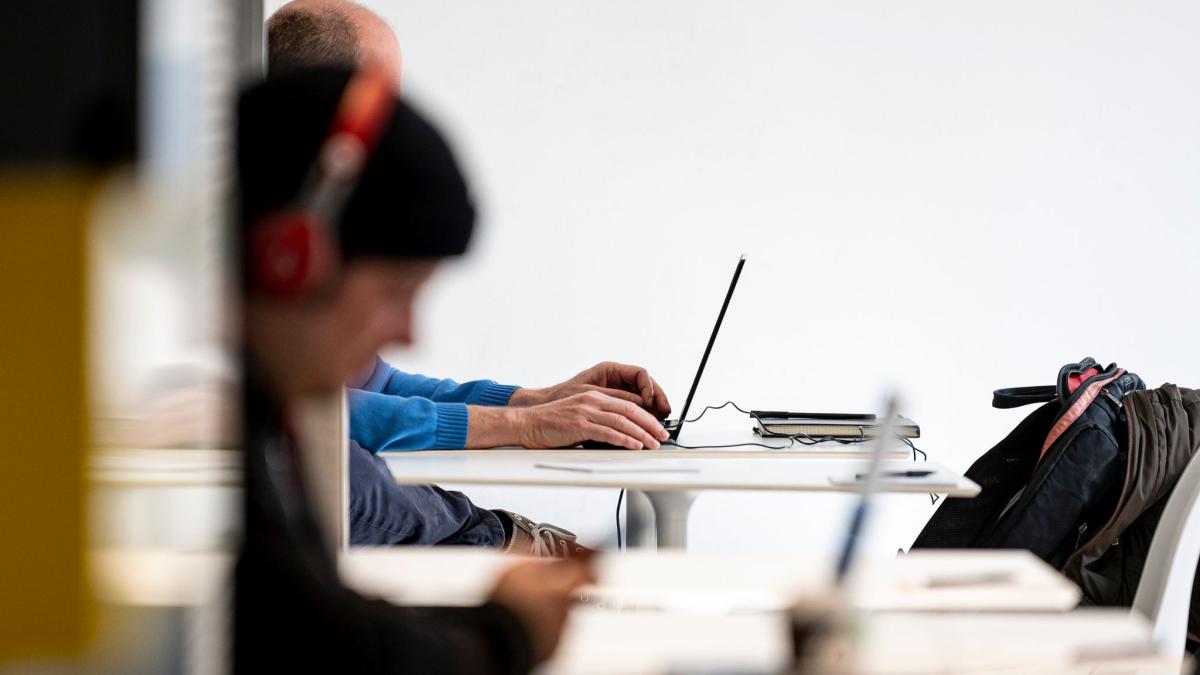Founders and growth companies are finding it more difficult to find qualified staff. The shortage of skilled workers is already dampening the growth of some start-ups. The industry is pushing for less bureaucracy.
Whether IT specialists or marketing experts – according to a new study, the search for specialists is becoming increasingly difficult for start-ups in Germany.
In a survey by the Federal Association of German Start-ups, a good half of the young companies stated that the lack of qualified people was a big or very big problem. For start-ups with at least 25 employees, it was even 85 percent. The clear majority of all companies (68 percent) believe that the problem of the shortage of skilled workers has grown over the past twelve months, according to the survey of almost 300 start-ups.
Accordingly, the gap in well-trained people, such as for IT, marketing, sales and accounting, is the biggest hurdle for the business before financing bottlenecks. According to the survey, almost 90 percent of start-ups have vacancies. It was said that there were a good 1,900 of the study participants alone. A lack of skilled workers slows down growth in around half of the companies, and almost 40 percent fear a dwindling ability to innovate as a result. As a way out, almost half of the start-ups offer more flexible and mobile working or recruit more abroad – especially larger companies.
Fell Warts on visas
“The lack of talent is massively slowing us down in Germany – we have to react as quickly as possible,” said Christian Miele, CEO of the start-up association. A special skilled worker visa is needed that takes into account the specific characteristics of founders and employees in start-ups. Portugal, Spain and the Baltic countries are better positioned here. While in Germany it takes an average of three months to issue a visa and for specialists from India or Africa it often takes up to eight months, while other EU countries need between 10 and 30 days.
“We hire 70 percent from abroad and our positions are also filled. However, a shortage of skilled workers is one of the greatest risks for growth and the pace of innovation,” reported Axel Hefer, CEO of the hotel platform Trivago.
The hurdles when recruiting abroad are often too high, agrees Magdalena Oehl, deputy chairwoman of the start-up association and founder of the start-up Talentrocket. While the effort within the EU is often high, bureaucratic hurdles, the recognition of qualifications and lengthy procedures make recruitment outside of Europe “a Sisyphean task”. A more pragmatic recognition of qualifications could help.
Disadvantages of the industry when recruiting
According to the industry association, start-ups employ around 415,000 people in Germany. The scene is regarded as an innovation driver for the economy and has grown significantly in recent years. According to the auditing company EY, start-ups received a record amount of 17.4 billion euros in venture capital in 2021. Up-and-coming companies such as delivery services or smartphone banks received amounts in the hundreds of millions from investors. However, when it comes to venture capital, Germany still lags behind countries like the USA.
The shortage of skilled workers is a widespread problem in the German economy, but the start-up industry has a structural disadvantage: compared to corporations or medium-sized companies, jobs there are less secure and salaries tend to be lower. However, as soon as start-ups are financed with venture capital from investors, they can “pay decent salaries,” emphasized a spokesman for the association. Pay is competitive, especially for the larger start-ups, which is evident in the recruitment of staff from sectors with high salaries such as banks and consulting.
© dpa-infocom, dpa:220402-99-767286/2 (dpa)
–


